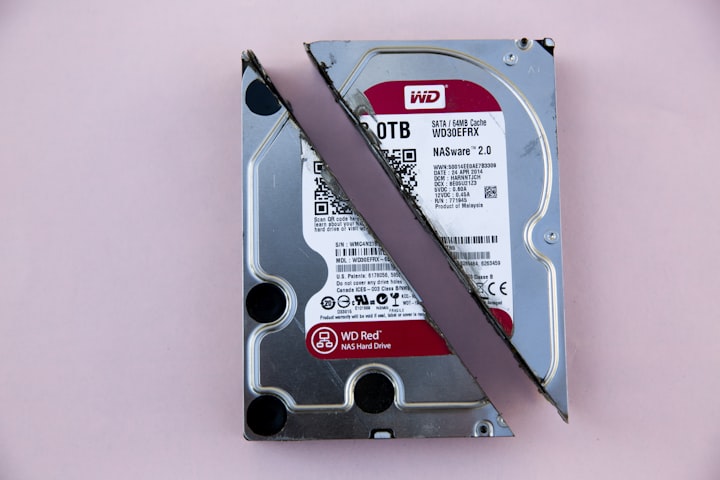Importance of Offsite Backup Storage for your Company
Disaster Recovery Management

We live in a world where not everything goes according to plan, especially in the case of a business. How in business? Well, we all want our business to grow, and it takes blood, sweat, and tears to make that possible. Still, after doing all the hard work, there are chances that your success could be wiped out by losing your company’s valuable data due to any number of reasons. It could be a malfunction, a fire on-site, or a water leakage; anything could happen in this imperfect world.
To lessen your chances of losing data, you need to understand the importance of system backups, especially systems that include offsite backup storage. Backup systems provided by different companies could recover lost data.
What is Offsite Backup Storage?
Offsite Backup Storage is a means of storing data to a remote server or a media transported offsite. Data could be stored on the remote server through the internet or direct access.
There are two basic types of offsite backup Storage:
1. Cloud Backup
2. Tape Backup
Cloud Backup:
A cloud backup is where a copy of your data is sent to an offsite server through a network. Typically speaking, that offsite server is hosted by a third-party cloud service provider.
Tape Backup:
Tape backup is where your data is copied to a tape cartridge from the primary storage. This tape is then transported to another location for offsite data protection. A disk could also be used for this purpose as it has a more significant read and write speed compared to a tape, but it is less durable, and there are chances of the disk being damaged during transport.
Advantages of Offsite Backup Storage:
Saves Physical Space:
Physical space is always an issue for most businesses hosting their infrastructure on their premises. You also face challenges of how much hardware can be kept on-site. Although the critical infrastructure should be maintained on-site, it is imperative to have offsite backup storage to save physical space. It not only gives you the advantage of more space but is also more secure and easily accessible.
Syncing your backup data to a server of a managed hosting provider might seem costly, and in most cases, it is. But it is a cost that can save your company employees a lot of hard work and give you peace of mind that it could be restored from the offsite backup if any data is lost on-site.
Cost Saving:
Offsite backup storage is a must-have for any company. It can reduce your overall costs, especially if your employees have to redo work due to the loss of data efficiently. With most of your data stored in offsite backup storage, your primary drive storage space could be freed up to leave more room for the operating system and critical files to run smoothly without slowing down your server. Running your servers in this way ensures you don’t need to upgrade your array as quickly as you have space to keep what is required to operate, allowing your server to run optimally.
Safeguards Data against a Complete system Crash:
Offsite Backup Storage is vital for saving your company’s essential data in case of a complete crash of your system. You may even have an issue where your server is not reachable, or a problem arises in the operating system or web server. Being able to retrieve a backup from offsite storage can be critical. Anything is possible, and losing your company data can be a catastrophic collapse in a business. To ensure business continuity and restore and recover valuable information, you need to ensure that offsite backup storage is implemented within your disaster recovery plan. With the advances in technology these days, you could opt for numerous ways to backup your data. For example, incremental backups of files or user data, or bare metal backups of your entire system so that you can recover your server to its most current state as quickly as possible.
Save Time:
A company might have to face costly downtime due to hardware or hard drive failure. Drives with moving internal parts have more chance of failure than flashable memory drives and have a limited life span. It is possible to retrieve data from a failed drive, but the time it would take to recover and clone it to the new hard drive can be considerably longer than retrieving the data from an offsite backup.
A business’ scariest nightmare is downtime, especially due to the cost implications downtime can cause. In the technological age we live in, we seldom read or listen to the news, and there isn’t a data breach of some sort. Without offsite backup storage, it becomes complicated to regain your data if you have experienced a data breach or ransomware attack. You can save a ton of time and money by making use of offsite backup storage and have the ability to start with a clean and uninfected copy of your data.
Offsite backup storage, at whatever cost, can be worth your peace of mind in knowing your data is protected, especially when dealing with any of the number of disasters that could affect your data.
About the Creator
Eworks Manager
Eworks Manager is Field Service & Job Management Software built for the trades and services industry.
To find out more information or request a demo, please call +44 161 526 7890 or email [email protected]






Comments
There are no comments for this story
Be the first to respond and start the conversation.